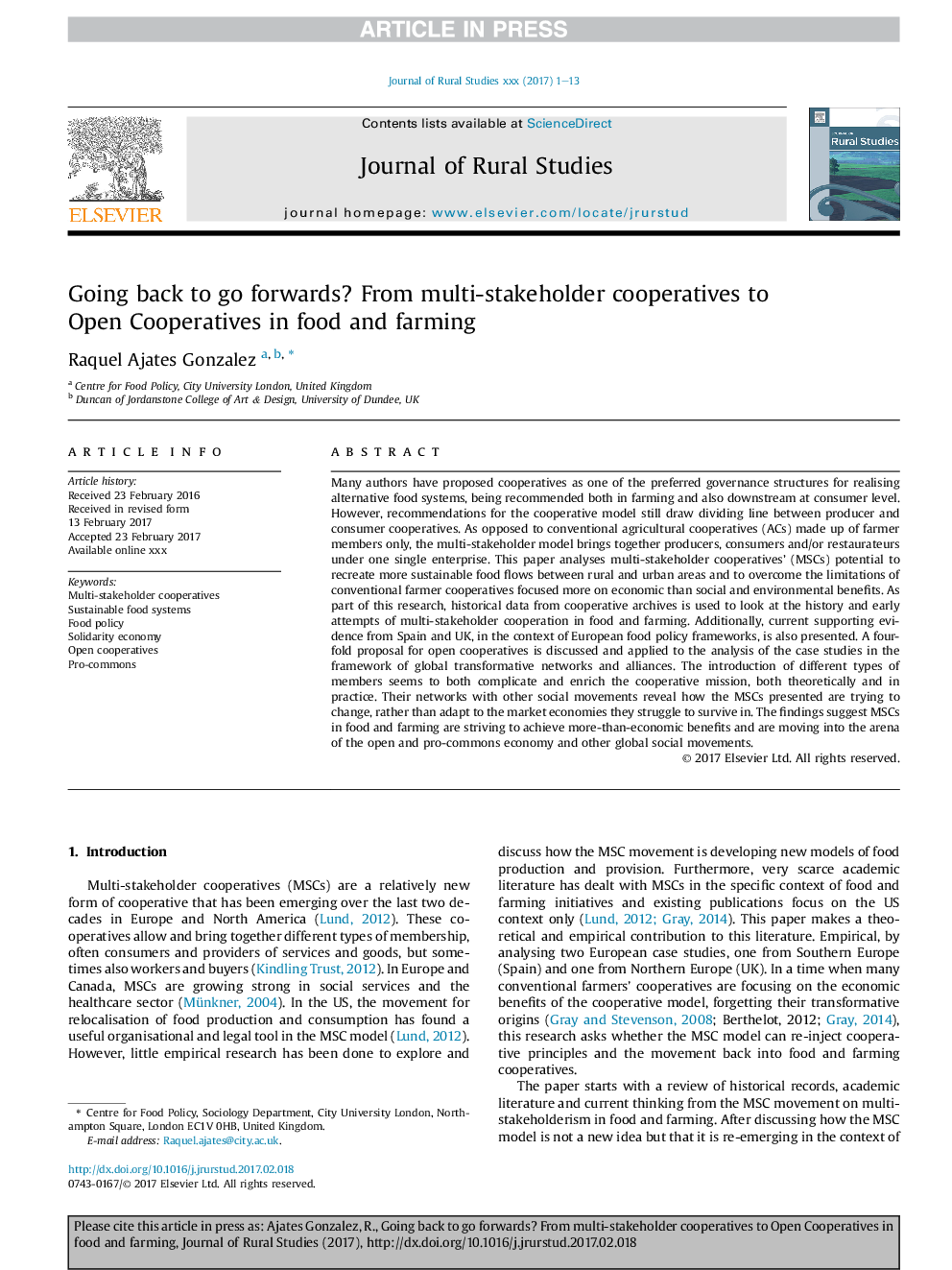ترجمه فارسی عنوان مقاله
رفتن به جلو رفتن؟ از تعاونی های متشکل از چند شرکت برای باز کردن تعاونی ها در مواد غذایی و کشاورزی
عنوان انگلیسی
Going back to go forwards? From multi-stakeholder cooperatives to Open Cooperatives in food and farming
| کد مقاله | سال انتشار | تعداد صفحات مقاله انگلیسی |
|---|---|---|
| 111317 | 2017 | 13 صفحه PDF |
منبع

Publisher : Elsevier - Science Direct (الزویر - ساینس دایرکت)
Journal : Journal of Rural Studies, Volume 53, July 2017, Pages 278-290

